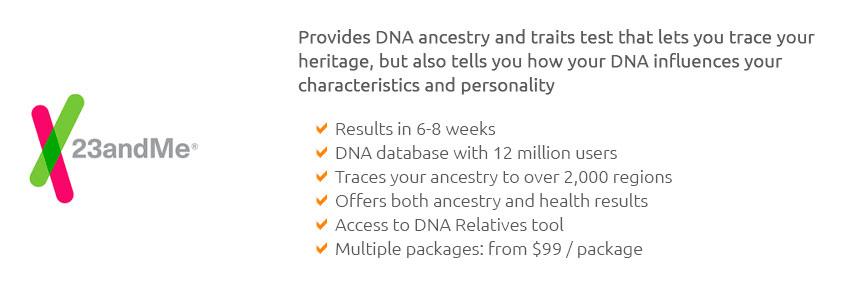 |
 |
 |
|---|
 |
 |
|---|
 |
|
|---|---|
 |
 |
 |
 |
 |
 |
 |
 |
 |
 |
 |
 |
 |
 |
 |
 |
|---|
Ancestry DNA Companies: A Comprehensive OverviewThe fascination with genealogy is as old as humanity itself, but the advent of ancestry DNA companies has revolutionized how we explore our roots. These companies, which have burgeoned in recent years, offer services that delve into the deepest corners of our genetic makeup, promising insights into our ethnic backgrounds, ancestral origins, and even potential health risks. At the forefront of this burgeoning industry are major players like AncestryDNA, 23andMe, and MyHeritage, each offering unique features and services that cater to a variety of customer needs. These companies operate by analyzing DNA samples, which customers provide via a simple cheek swab or saliva test. The sample is then processed in a laboratory, and within weeks, results are delivered through an online platform, showcasing an individual's genetic ancestry and sometimes connecting them with distant relatives. The popularity of these services is evident in their widespread use; millions have participated, driven by an innate curiosity about their origins.
The allure of these services lies not only in their ability to uncover hidden facets of one’s lineage but also in the personal connections they facilitate. Many users have discovered long-lost relatives or gained a deeper understanding of their family's migration patterns, fostering a sense of belonging and identity. However, the journey into one's genetic past is not without its challenges. Privacy concerns loom large, as users must trust these companies with their most personal data. Each company has its own privacy policies, and it is crucial for users to understand the implications of sharing their genetic information. Moreover, the accuracy of these tests is subject to the size and diversity of the company's database, which can affect the precision of ancestry estimates. While these companies strive for accuracy, results are best interpreted as estimates rather than definitive answers. This aspect has prompted debates within the scientific community about the limitations and ethical implications of consumer genetic testing. In conclusion, ancestry DNA companies have undeniably transformed the landscape of genealogical research, offering unprecedented access to genetic heritage and potential health insights. As the industry evolves, it is imperative for consumers to weigh the benefits against the privacy risks and to approach their results with a critical eye. The narrative of human ancestry is complex and multifaceted, and while these tests provide a fascinating glimpse into our genetic past, they are but one tool in the broader quest to understand our identities. As we continue to explore the capabilities of DNA testing, it is crucial to remain informed and cautious, ensuring that this powerful technology is used responsibly and ethically. https://www.familytreedna.com/?srsltid=AfmBOooH6tPhiF9FOY4w_OZ0t3qk83dDSD-Lqz4es2ikwGHtUkSfqKB7
As the only company to offer three separate DNA databasesautosomal DNA (Family Finder), mtDNA, and Y-DNAFamilyTreeDNA is the only place to find the missing ... https://isogg.org/wiki/List_of_DNA_testing_companies
AfricanDNA (website archived by the Wayback Machine) (FTDNA affiliate) (admixture, deep ancestry, genealogy) - Argus BioSciences (deep ancestry, full mtDNA ... https://www.23andme.com/dna-ancestry/?srsltid=AfmBOoogvsgfWMIsh72yhedCexMUOBYoPvIZDvem3wXhot6J-7nE4Hr7
That said, it is possible for a genetic testing company to be wrong about half-siblings.
|
|---|